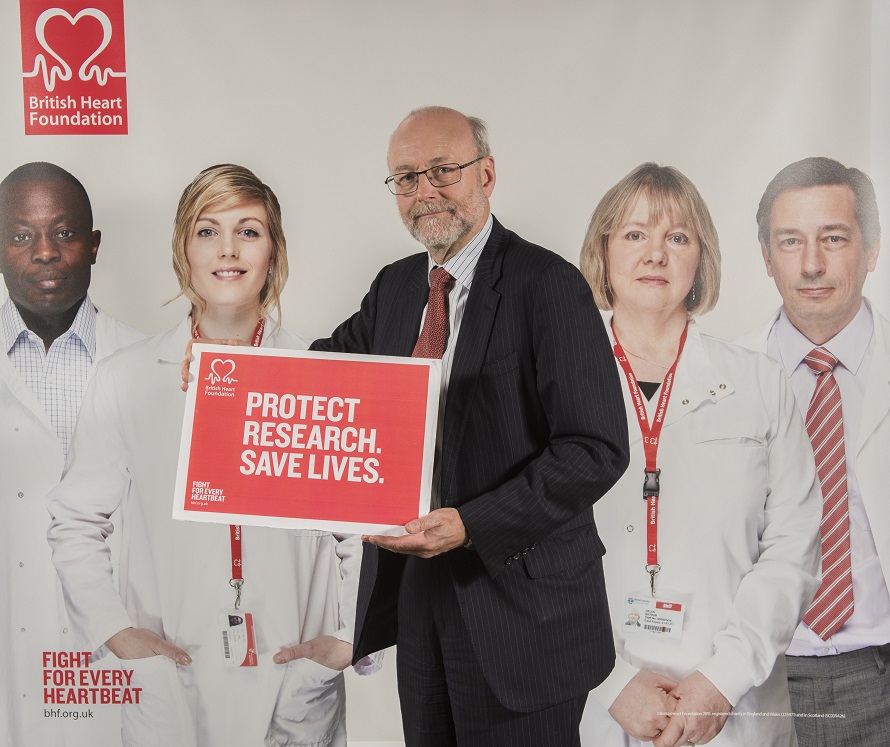
After learning that almost 15,000 people in his constituency are living with heart and circulatory disease, Alex Cunningham has backed UK medical research and spoken out against the risks posed by removing the ring-fence for crucial science funding.
Joining British Heart Foundation (BHF) scientists and heart patients in Parliament, Stockton North’s Labour MP heard how research is helping to save and improve the lives of millions of people while learning more about the latest research projects, the hope they offer to people with heart conditions and why government support is vital.
The BHF is the largest independent funder of cardiovascular research, spending around £100 million every year on world class research to improve prevention, diagnosis and treatment of cardiovascular disease. And the charity sector is by far the largest funder of life sciences research in our universities.
Every year, government contributes £198 million towards the indirect costs of charity-funded research, such as heating and electricity in laboratories. But this figure falls short of covering all the costs of undertaking life-saving research. With the Government’s science budget only protected until April 2016, future cuts in this area in an effort to reduce costs are a distinct possibility.
Alex said:
“Heart disease is a devastating condition affecting thousands of people across Stockton North. As many as seven million people are living with heart and circulatory disease across the UK, which is the cause of a quarter of all deaths nationwide.
“Thanks to public support, charities like the BHF are able to fund some of the world’s leading researchers, who work tirelessly to find the next major breakthrough that could help save more lives. But the axe is hovering ominously over crucial government contributions to this vital research.
“If we are to go on making great strides in heart research, continued public support is critical and I encourage people across the Stockton borough to do all they can to back this cause. But, with any cut to science spending putting current and future research projects at serious risk, along with the extra lives that such research could help save, the Government also needs to commit to long-term support for our brightest scientists.”
Professor Peter Weissberg, Medical Director at the BHF, said:
“Any cut to science funding would be extremely damaging to our life-saving research and the fight against heart disease.
“Through our research, we’ve helped make great progress over the last 50 years to reduce the number of deaths from heart disease by more than 50 per cent and improve the lives of people living with it. This year alone our researchers have developed a highly sensitive blood test that could double the detection rate of heart attacks in women. And recently our researchers have improved our understanding of how we may be able to regenerate the heart after a heart attack bringing hope that one day there will be a treatment for severe heart failure.
“Much more research is needed if we are to continue helping the millions of families across the UK deeply affected by heart disease, and this can’t be done without strong government support.
“The Government urgently needs to secure the future of medical research by maintaining the current ring-fence and committing to future increases.”

